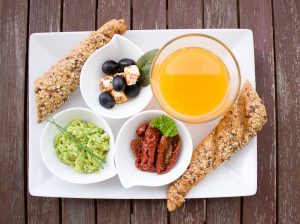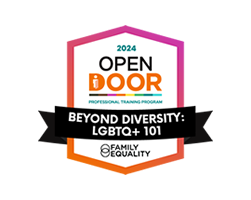 As a gestational surrogate, this isn’t your first pregnancy. You already know the importance of good nutrition for a healthy pregnancy, but medical advice can change over time, so you may need to update your thoughts on nutrition. Consider the following advice to keep you and the baby you are carrying happy and healthy.
As a gestational surrogate, this isn’t your first pregnancy. You already know the importance of good nutrition for a healthy pregnancy, but medical advice can change over time, so you may need to update your thoughts on nutrition. Consider the following advice to keep you and the baby you are carrying happy and healthy.
Ideally, you will begin your nutrition plan before becoming pregnant to prepare your body for the coming pregnancy. Discuss with your doctor what vitamins or supplements you may be taking to see if they are okay to continue throughout your pregnancy. And of course, take their advice regarding nutrition.
Limit or Avoid the following:
Caffeine. The American Academy of Obstetrics and Gynecology (ACOG) has stated that one cup of coffee per day (200mg of caffeine or less) is considered generally safe.
Fish. While fish can be a great source of protein for pregnant women, the ACOG recommends you eat no more than 8-12 ounces of cooked fish per week. Be aware that some kinds of fish such as albacore tuna, swordfish, shark, king mackerel, marlin, orange roughy, and tilefish can have high levels of mercury, according to the Academy of Nutrition and Dietetics, and should be avoided.
Unpasteurized products. Raw foods can be the source of toxoplasmosis, an infection caused by a parasite or listeria, a type of food poisoning that can cause miscarriage, stillbirth, and preterm labor. These toxins can be found in:
- Raw milk
- Soft cheeses
- Lunch meat
- Deli salads
- Pate
- Juice or cider
Raw proteins. Toxoplasma can be passed along to the fetus causing blindness or mental issues. It can be found in raw or undercooked meats, fish, and seafood and should be avoided during pregnancy including:
- Rare, raw or undercooked meats and poultry.
- Raw fish, such as sushi, sashimi, ceviche and carpaccio.
- Raw shellfish, such as clams, mussels, oysters, and scallops.
Other foods to avoid:
Salmonella and E. coli bacteria can be found in raw or undercooked items such as:
- Raw or runny eggs, or food containing them, such as:
- Raw cookie dough
- Cake batter
- Tiramisu
- Chocolate mousse
- Homemade ice cream
- Homemade eggnog
- Hollandaise sauce
- Raw or undercooked sprouts
- Unwashed raw vegetables
What can you eat during pregnancy?
Some of your food choices may be dictated by tastes and sensitivities, particularly in the first trimester when many women struggle with morning sickness. To begin with, you don’t need to “eat for two,” you need to add only 300-600 calories to sustain a singleton pregnancy. Ask your doctor for calorie recommendations if you are carrying multiples. It’s typically recommended that women gain 25-35 pounds during pregnancy. Smart nutrition will keep you on track.
Fruits and vegetables. It’s recommended that pregnant women get 5-10 servings per day of a wide range of types and colors to ensure good nutrition.
Lean protein. Consider meat, poultry, fish, eggs, beans, tofu, cheese, milk, nuts, and seeds. Be sure your protein sources are fully cooked.
Whole grains. Include oatmeal, whole wheat pasta or bread, and brown rice for healthy sources of fiber, iron, and B vitamins.
Dairy. Try to get 3 to 4 servings of milk, yogurt, or cheese daily for calcium, protein, and vitamin D.
Don’t forget to drink plenty of water throughout the day to remain well hydrated and aid with digestion. Your doctor will likely recommend you take a prenatal vitamin to ensure your nutritional bases are covered.
If you have any questions about pregnancy nutrition or anything else regarding your surrogacy journey, contact the specialists at Surrogate Solutions.
We help Intended Parents Create Happy Families via Egg Donation & Surrogacy with the help of
caring Egg Donors & Surrogates.
Why use an agency, Surrogate Requirements, Can I be a Surrogate?, Facts about Surrogacy, Information on surrogacy, What our agency can offer you , Surrogacy FAQs, Families who need you, Learn more, Apply now.







